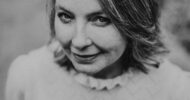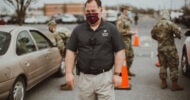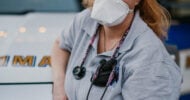I’ve been reflecting lately because, honestly, I feel like I am—finally—good at primary care. With experience, patience, and, dare I say, wisdom, I experience satisfaction, knowing I can do this job. I’m the real McCoy. Or, in my case, the real McCarthy. And despite this, maybe because of this, the effort required often leaves me incapable of doing much else.
At 47 years old, having survived a pandemic, having found my North Star, I can’t think of another job I would rather do. Each morning, assuming I am rested and caffeinated, I bring enthusiasm to the day’s work. But I cannot say that I endorse my job, which is not to say that I don’t love my job, because I, in fact, do.
As a medical student, a siren song called me ashore, and despite myriad obstacles, I traveled the long road and became a trusted primary care doctor. During my journey, unbeknownst to me, American medicine changed, a fact that made me arrive at a much different destination than the one I glimpsed from the water’s edge.
Between my medical school graduation in 2002 and now, West Virginia’s citizens aged ungracefully while American culture devolved in negative ways. Today, we have fewer primary care doctors; more expensive medications; a more difficult “system” of health care, one which is increasingly electronic, impersonal, and nonsensical. These are but a few of the fracture points which sinkholed the foundation of primary care, the supposed terra firma where I planned to build my career.
And this is before social ills like divorce, loss of pensions, substance abuse, and the haunting specter of America’s silent epidemic, loneliness, are considered. I expected the medical problems, and they are, in fact, what I am better at managing. What I did not expect was that, because of society’s dramatic changes, my patients today need a level of attention not described in any textbook. So, they turn to me.
My job, it turns out, drains all of my “social battery.” Today, at the end of a primary care workday, I have nothing left, not a care to give and no desire to speak to anyone. I’m ambivalent about my job’s impact on my life. I thought that, by middle age, I would belong to a clique of doctors, a running group, a band, or something like that. This informal fraternity never materialized and, even if it had, I wouldn’t have anything to give these folks. Social organizations, church, and fraternal groups, I have nothing constructive to contribute.
Seeing people at the gym, spending time in a coffee shop, going out for the evening, I used to be a person who enjoyed social events. I had a reputation as someone who was fun and outgoing. That man, whoever he was, has been erased. I still have enthusiasm to pet my dog, Trixie, and hang out with my beloved wife, Erica, more so than ever as they bring me true joy, the kind that recharges me. They are the keys to me continuing the work to which I am devoted. I am authentically myself with them—Thank God— and there is no need to be “on.” I can just be me, a man who is increasingly seen after dinner in a bathrobe with his feet propped up.
A punchline from a tired joke, “I gave at the office,” unfunny as it is, it applies to me. I will repeat the same routine tomorrow, pouring my heart into my patients, leaving me with little to spare at day’s end. My fatigue will, I know, mostly be erased come the following sunrise, assuring me that I am not, in fact, burned out. I have faith that, in the clouds of my morning coffee, I will see a new horizon, one which calls me to serve my flock.
Today, I’m grateful for my youthful ignorance, having no clue this is where I would arrive. Had I known, I may have been scared away and never committed to primary care, a job which leaves me mentally drained. As long as there are fractured and broken people in front of me, doing their best in a disjointed society, I will freely and lovingly drain my battery to care for them. I did not know this would be my service in health care, and yet here I am. Had I chosen another path, I would never have known a beautiful form of exhaustion, the kind that comes when your brain can no longer concentrate, but deep down in your bones, you know that you gave, as much as anyone can, at the office.
Ryan McCarthy is an internal medicine physician.























![Ecovillages and organic farming could reverse global warming [PODCAST]](https://kevinmd.com/wp-content/uploads/The-Podcast-by-KevinMD-WideScreen-3000-px-3-190x100.jpg)
![Teaching joy transforms the future of medical practice [PODCAST]](https://kevinmd.com/wp-content/uploads/Design-1-1-190x100.jpg)
